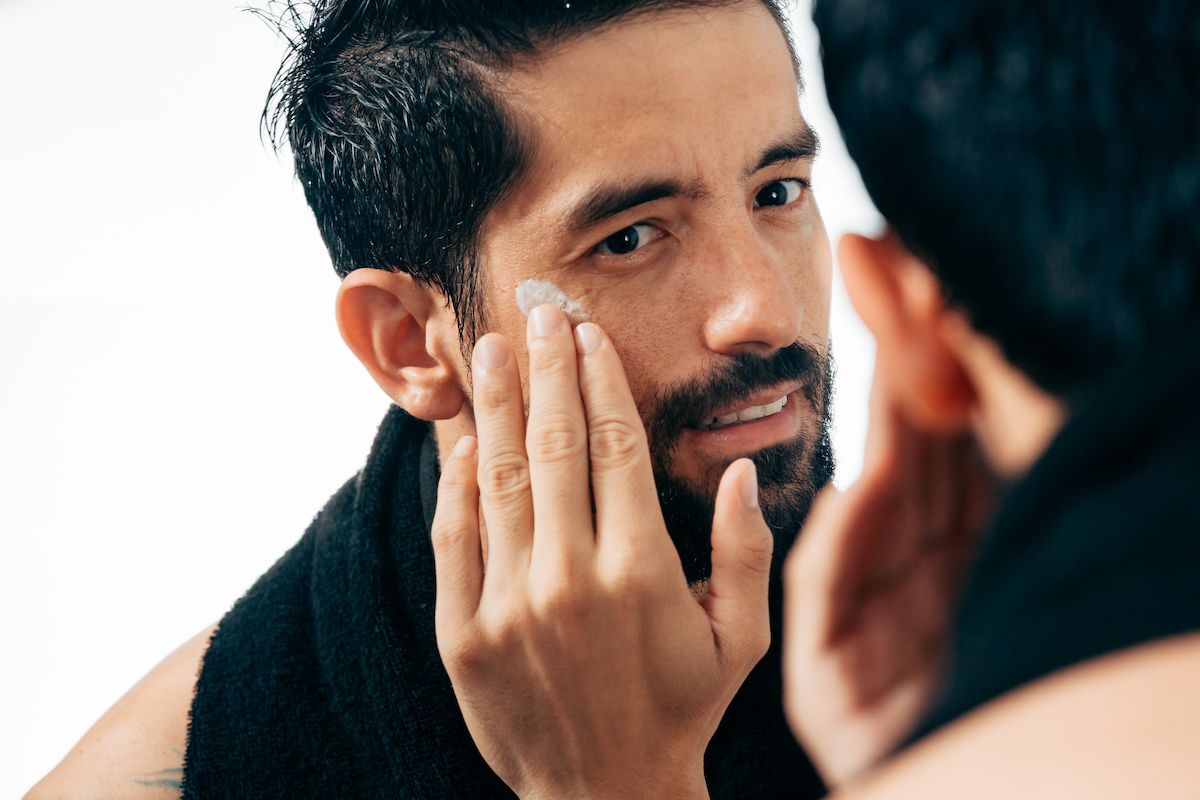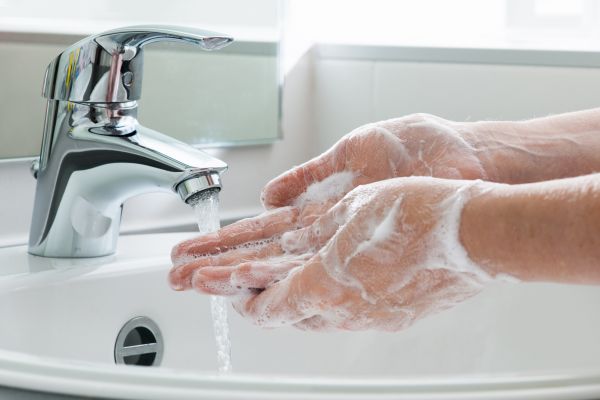The days are growing shorter and colder, and if you haven’t already turned on the heat, you soon will. Winter brings challenges in caring for our skin, particularly in Western New York, as the bitter cold outside and the dryness inside take their toll. Some medications, such as cholesterol-lowering drugs, can also affect the skin’s ability to stay hydrated.
Why is it important to avoid dry, chapped skin? First of all, dry, chapped skin and lips are likely to be itchy or uncomfortable. Second, skin is our first line of defense against infection and disease. Cuts, abrasions and even tiny cracks in the skin around our fingernails can create open doors for nasty germs. That risk is higher if you are in treatment, because some treatments cause skin problems on their own. At the same time, if germs do enter your system, you are more likely to have a weakened immune response and wind up getting sick.
Remember that drinking lots of water is very important for healthy skin. Here are some other tips for protecting your epidermis.
Cleansing Cues
Don’t overdo it. Wash your face once in the morning and once at night. Shower (or bathe) once a day or once every other day.
Steaming hot showers may relax tense muscles, but they’re not the best choice for your skin. Hot water can make your skin more sensitive and strip it of its natural, protective oils. If you tend to have dry skin, this could make your skin itchy or flaky. If you have oily skin, your body may react by making even more oil. According to the American Academy of Dermatology, moderately warm water is best for washing your face. (And most skin-care products are tested with water at this temperature.)
Be gentle when washing, particularly with your face. Pat your skin dry — don’t rub it roughly with your towel. Washing is not the time to work out your aggressions!
Avoid deodorant soaps such as Dial, Ivory or Camay. Use super-fatted soaps like Dove, Oil of Olay, Neutrogena or Aveeno, or soap-free Cetaphil cleanser.
Never miss another Cancer Talk blog!
Sign up to receive our monthly Cancer Talk e-newsletter.
Moisturizing Mojo
Always use a moisturizer after you cleanse, to restore the protective oils you just washed away. The best time to apply moisturizer to your body is while your skin is still damp. For your face, apply it after gently patting your skin dry.
Lotion or cream? Both keep skin soft and hydrated. Lotions contain more water, are lighter in weight, and are less likely to leave greasy residue. They’re good for daytime and summer use. Creams are much heavier and usually contain more oil. The higher oil content helps form a protective barrier on the skin that keeps in moisture, but also tends to leave a greasy residue. Creams are good if your skin is very dry or if you have normal skin but the winter weather is very harsh. It is more common to use creams on arms, legs, hands and feet, while applying something lighter on the face.
Moisturize properly: Infuse your skin with water and cover it with something (such as an oil) that will stop the water from evaporating from your skin.
Types of Moisturizers
- Humectants attract water and help skin retain it. Examples: glycerin, propylene glycol, sorbitol, hyaluronic acid, alpha hydroxyl acids (AHAs) such as glycolic and lactic acids (Aquaglycolic, Neutrogena Alpha Hydroxy face cream).
- Emollients soften and soothe the skin. Examples: fatty acids, ceramides, mineral oil, plant-based oils such as coconut oil (Gold Bond Ultimate Healing, Carmol, Lubriderm, Cetaphil Lotion, A&D).
- Occlusives leave a film on the surface of the skin and seal in moisture. They’re also called barrier creams. Examples: mineral oil, shea butter, cocoa butter, petroleum jelly, beeswax, paraffin, dimethicone, lanolin, urea.
(Note that some compounds and products contain more than one type of moisturizer.)
Helpful Suggestions
Apply lighter products first. When heavier products are used first, they’ll block the skin from absorbing the water-based products.
For sensitive (or irritated) skin, try glycerin products — they won’t burn.
For oily/acne-prone skin, use lightweight gels and serums and avoid occlusives.
For dry skin, oil-based creams or lotions work well. Avoid products containing alcohols or fragrance; both are drying. Look for products that contain phospholipids, such as Neutrogena or Moisturel.
If you’re undergoing radiation therapy — or if you are receiving any type of cancer treatment and have any skin irritation, cracked or peeling skin, or a rash — talk to your health care provider before using any products on your skin.
For More Information
- “Tips for Maintaining Healthy Skin” (a Roswell Park patient education brochure): Available in the Patient Education Library on the Patient Portal, in the Resource Center (first floor of the hospital, inside the Sunflower Café), or ask your nurse for a copy.
- “Skin Reactions” (Chemocare)
- “12 Skin Care Products to Use During Chemotherapy” (Self)


